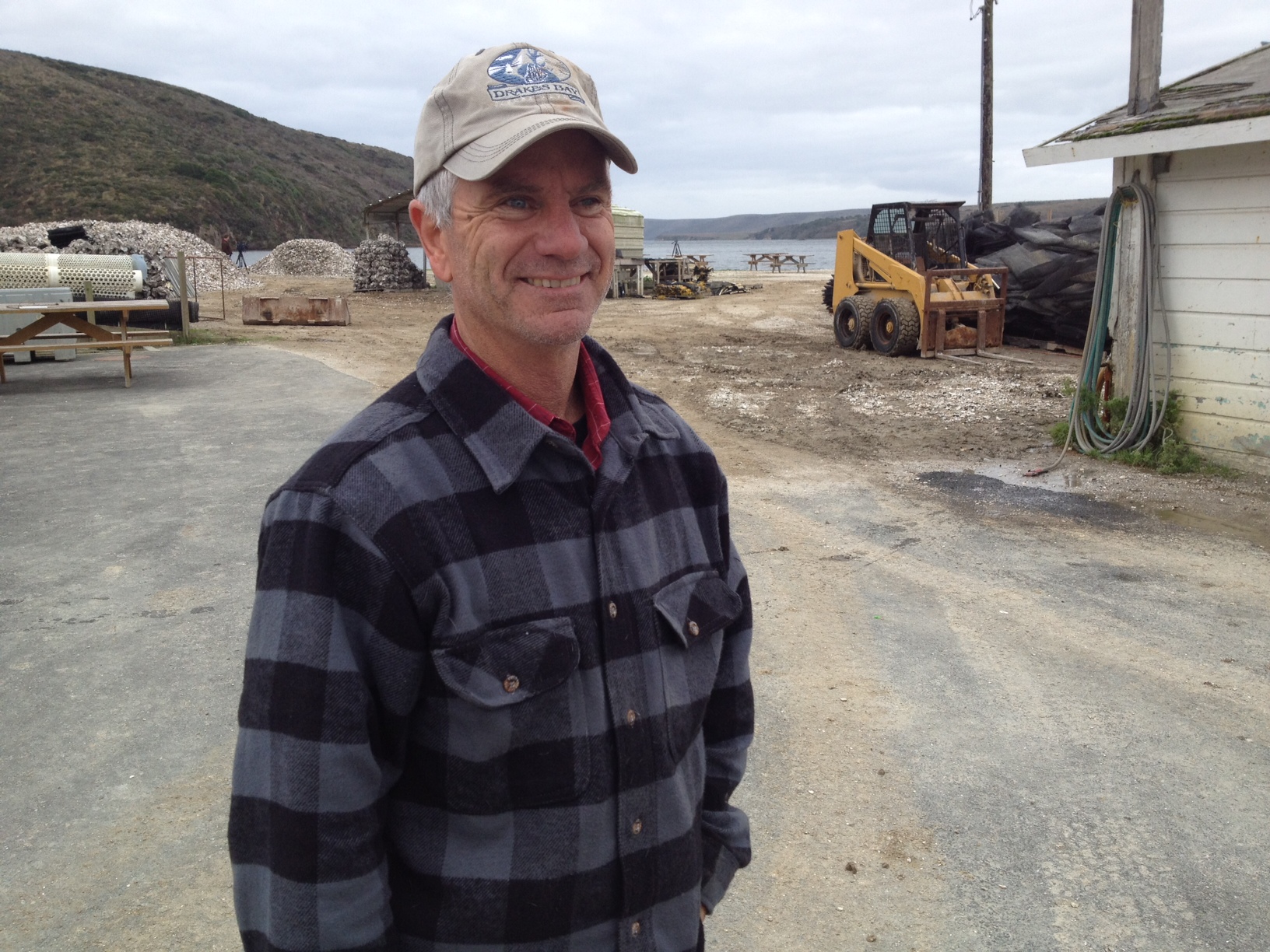Just another case of Government over reach???
Drakes Bay Oyster Farm Sues Federal Government
Ken Salazar said he didn't make his decision regarding the environment, but on law and policy
Less than a week after the U.S. Interior Secretary
announced he would shut down a historic Northern California oyster farm
along the Point Reyes National Seashore to designate it a wilderness
area, the owner of Drakes Bay Oyster Co. filed a lawsuit challenging that decision.
Kevin Lunny filed his lawsuit in U.S.
District Court in San Francisco on Monday, just days after Ken Salazar
announced that he would not renew the Drakes Bay Oyster Co. lease, which
expired Friday.
The suit, taken up by Cause of Action
attorneys along with the Stoel Rives and SSL law firms, are alleging
that Salazar and the National Park Service "ignored the U.S.
Constitution, violated the National Environmental Policy Act and
countless other pieces of legislation." In a statement sent on Tuesday,
the lawyers also claim that Salazar "often misrepresented data" in the
decision to shut down the farm. Lunny's suit is based on his assertions
that his operation disturbs the estuary. In fact, according to Lunny,
the scientific studies he is pointing to have shown oysters may
actually improve the health of the water.
Salazar was not available for
immediate comment, but he had said he based his decision not on the
environment, perse, but on law and policy.
The move was thought to have brought a
close to a years-long environmental battle over the site. But this suit
obviously changes all that. While environmentalists had cheered
Salazar's decision to return Drakes Estero to the "state of wilderness
that Congress designated for it in 1976," many oyster lovers have been
standing behind Lunny.
Salazar's decision came despite the
company's powerful allies, including Sen. Dianne Feinstein, D-Calif.,
who said the facility should be saved because it is a key part of the
rural economy.
Feinstein and the National Academy of
Sciences had claimed the National Park Service was trying to get rid of
the oyster farm by exaggerating its negative impacts on the
environment. During the impasse, more than $1 million in taxpayer
money was spent on environmental assessment studies, according to
records.
The company was seeking a 10-year
extension of its lease. Lunny, whose family also operates a
cattle ranch in the park, had said the history of the national seashore
is one that saw commercial interests and environmentalists work
together. 

"It's part of the history, the community and the tradition of a coastal community,'' Lunny told NBC Bay Area in a previous interview.
"It's a national seashore where working landscapes, agriculture and
farming were meant to co-exist.'' Environmentalists and park
officials said farm's operations threatened nearby harbor seals and
other native species.
Lunny has been fighting the battle
to save his business for seven years. "We just want to be
farmers," Lunny, who grew up nearby in West Marin, told NBC Bay Area
earlier. "We had no idea we were going to find ourselves in this kind of
battle, that's actually turned into a national debate."
The debate has been between Lunny
and environmentalists, who have squared-off in a vicious debate over
science that's split the otherwise tranquil Point Reyes community.
"This has been very divisive
locally," said Amy Trainer of the Environmental Action Committee of West
Marin, which had successfully lobbied for the oyster company to be shut
down. The roots of the brouhaha were planted in 1976, when Congress
passed legislation designating Drakes Bay as the first marine wilderness
area on the West Coast. Trainer's group was "ecstatic" after Salazar's
ruling last week.
A bit ironic that this story highlights the efforts of a Democratic senator to fight envirowackos on behalf of a business. I thought such things never happen in real life. I nosed around and read a few more stories on this. Sigh, if only all of life was a simple as straightforward as the topic headers I see here.
ReplyDeleteThe question is the government being unreasonable in not granting the company an extension? He's been there for 40 years without incident.
ReplyDeleteI this a case of Ken Salazar being unreasonable?
"The question is the government being unreasonable in not granting the company an extension? He's been there for 40 years without incident."
ReplyDeleteActually, that's not true. The Oyster operation may have been there for 40 years, but the current owner has only owned it since 2005 and was aware of the lease expiring in that time. As for there being no incidents, well, I'm not sure that's accurate either. To his credit, the current owner appears to have taken some really good strides to lessen the impact of his business. However, it's still something that contradicts the premise of what wilderness is about.
Considering this is business versus nature, of course there is only one correct answer, the regulations are overreaching. From what I read, the land does have some unique features that lead to it's being deemed wilderness. In that light, I don't think Salazar is really being so odious. But, I can understand the claim. It's like, "This has been here for forever, why does it have to change now?" I don't see a clear answer for myself given what I have read, but I do think it's a bit more complex then your article here is giving the story credit for.